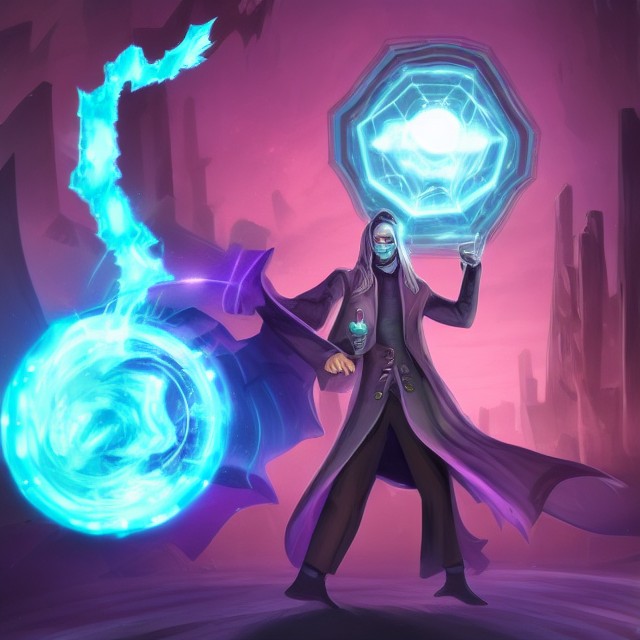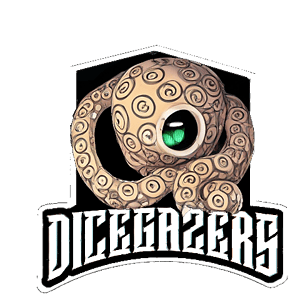Whether you are new to roleplaying, getting back into it, or struggling here are some GM and player tips for roleplaying to help you have a better gaming experience. These roleplaying tips are meant to help build a better foundation which you may consider to be basic. Your perspective however is the source of any frustration you are having while playing a game so it is actually the best place to start.
Play what you like to start with
Tabletop roleplaying game characters can take a while to create from the concept stage to the finished written character sheet. By starting with a character class that you already like you help reduce the overwhelm of learning a new system or relearning it. With all the different books available in most games this can be a huge time saver for new players.
This then allows you to put more time into developing a background for the character. Most importantly though is your character’s personality. How does he behave around others? Is he/she heroic, cowardly, hopeful, helpful, etc?

When I started playing Rifts again I joined a group that was playing Juicers. I had never played a juicer BUT I knew that I liked melee and long-range fighter types so this was perfect. I then spent hours rereading the Rifts Ultimate book, Juicer Uprising, Merc Ops, and several others. I settled on a Titan Juicer, basically a super strong yet slower than a normal juicer. I planned to play him as a jovial bruiser/tank-style character for the group.
Look at this article to be more descriptive with clues you give out.
In the end, almost a decade later he was one of the most memorable characters because I loved his personality, disposition, and general attitude. How much damage he did, and how much HP or items he had was not important. What ended up being important years later was how I connected with the character concept I created and then the experiences I shared with the other players.
Try new builds after you get down the basics
It is entirely up to you when this applies. As a new player you’ll be inundated with information: items, skills, powers, abilities, races, stats, etc, just to name some.
As you learn more about the game you’ll inevitably come across a character build you want to play that’s outside the norm for you or your group. Don’t be shy to give it a try. You may find that a class, race, skillset, or another theme is far more fun than you anticipated.
An example here is that I never thought the Shifter class in Rifts would be all that fun. I was playing a game where mages were recommended as characters. Someone else chose a Ley Line Walker which is the standard mage(the wizard in DnD) in Rifts. So I chose to play the summoner essentially.
Choosing this class it opened up an avenue of character building I never expected and it became my favorite class. The versatility of the class is immense. The more I read about what’s possible for the class the more questions that came up and then the more I learned about the Rifts setting itself and character building.
If you’re new to tabletop games then read this to find out what tabletop games are called.
Above all, have fun together NOT at another’s expense
Part of roleplaying games is the discovery of exploring a character concept and they are more fun to do WITH others. Obviously, you are getting together with other people and all playing or GMing, however, sometimes we make the mistake of feeling like the GM or other players are out to get us. Think for a bit about yourself in these situations. Do you go out of your way to make others feel bad? Almost certainly not. If you don’t then is it possible others don’t and you’re misunderstanding what someone else meant? Again almost certainly so.
with that in mind instead think that your players or GM is trying to include you in having fun. Trying to include you in a fun experience. This can be a difficult idea to absorb especially yet when you do it will drastically change your experience with other players.
Simplify your character sheet on virtual tabletops
You can do a lot of things with character sheets in ROll20 and other games. When playing Rifts about 10 years ago, my group and I loved making macros built into them. We found that after a while we spent just as much time finding them, fixing them, double checking if the bonuses were right, and other things as we did just rolling the die and then looking for bonuses(or skill percentages, equipment, spells, etc) if not more.
In simplifying your character sheet I find it just easier to put everything on your character bio page. If you list all your stats, bonuses, skills, magic/psionics, and equipment near each other it’s usually much easier to check all the options you have at hand. I use the very top of my bio for background, then list character numbers as listed above with class description or other rarely used information below the above.
Don’t get caught up in the details, just roll the dice
Depending on the game your bonuses can vary significantly. Even if they are simply in your game, it is oftentimes just easier to simply roll a die, and if things are close, THEN look for bonuses.
Legates tips for tabletop roleplaying games
The first rule of role-playing is to have fun. Remember to make the game fun for everyone. A lot of work goes into making a game what it is. Can it be made better for the next game? In a lot of ways it can.
The game-master experience is to create an immersive story for the players. The player’s experience is to contribute in their own way to the game-master’s experience by playing the character they rolled up.
If using a module, study the module ahead of time and have a clear idea of where the game is going. Build up NPCs, particularly those that have something to offer in the game, be that information, barter/trade, or a future encounter like a double-cross. If the module happens to be an older one and you believe some of your players may have played it in the past, no matter how long ago, don’t be afraid to change it up a bit in places. Swap out encounters, and make it more or less challenging for players. Give them a chance to explore the game a little differently this time around.
Write down your ideas and have them prepared, and on hand.
If you are going to run a custom game for your players, understand the basic rules on how to create a story. A setting is not a plot. A setting is an environment in which your story is being explored. A plot is the central event of your story, around which the activities that occur in your story are centered on. A key villain is required, a minor villain who leads a gang of devoted servants, and a few random events upon which your players can learn how to team build around.
The setting, being the backdrop, establishes a place, time period, and overarching destination for the player characters. That backdrop can be a war, a time of peace, a plague, a drought… A hardship that impacts everyone all around. This hardship is what motivates the non-player characters. Petty theft as a result of extreme poverty – or petty theft as a test of one’s skills for a shadow organization which is the central villain of your game – meaning, the ‘Thieves Guild.’ Whatever direction, you wish your players to travel in, your central plot has to be something relatable to your players and their characters.
Create opportunities for Character Development
Players want to see their character’s in action – they want to express a voice, a personality, and interact with the background characters of your story. Let them, and create those opportunities for them. Flush out your NPCs with small backstories and a personality. Better yet, convey an important detail of your game through key NPCs through which your characters will learn about the story and the lore you’ve developed for this game.
Keep things fresh. A game session should be distinctive from a previous one. Don’t get bogged down in combat. If a game runs over into a new game session, find a way to put an end to the previous conflict and move on to a new chapter of your story – even if one needs to be devised. This is an opportunity for Game Masters to revisit their game to date and find the clues and details the players missed, and catch them up, linking them to the greater story arch. Introduce a new NPC, a new location with some kind of key evidence, or another crisis created by the main antagonist. Have them interact with the new NPCs in this expanded story so that the players can learn something new about their enemy.
Reward players with gifts
Don’t let players continue to struggle for coins to pay for repairs, new weapons/armor/equipment, or be unable to survive in the world. Random trinkets that can be traded or sold for something desirable should be made available to the players regularly.
Players, remember that the GM is constantly putting time and energy into the game – even when they fail to put across an idea, work with them to help realize that idea, even if the original idea has to be changed because of an impact in the game. Game Masters often struggle to find ways to keep the story moving forward. Players are there to make sure that’s what happens – a progression in the story. Be an active part in that – even if you ask the Game Master to clarify a previous segment of the game that didn’t successfully convey the core concept that was trying to be expressed. Your characters might be oblivious to the fact, but the players should have a better insight, otherwise, frustration becomes the outcome of the game and no one enjoys the story or the arc.
